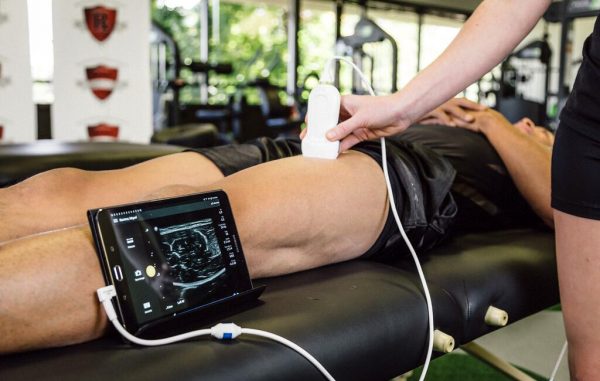After five years in business, MuscleSound is trying to raise a fresh $5 million in venture capital.
The business sells software that helps monitor levels of glycogen, the main fuel source for muscles.
MuscleSound has landed $566,000 so far this raise, according to a recent SEC filing.
“We are constantly upgrading our software and technology,” Chairman Stephen Kurtz said. “The money is going to really market and expand our sports and fitness business and a little bit into healthcare.”
In 2015, MuscleSound’s clients included the Colorado Rockies and the University of Colorado athletic department. At that point, its services were specifically geared toward measuring glycogen in athletes.
Kurtz said MuscleSound has moved beyond professional athletes and sports teams to a broader client base, including physical therapists and hospitals. For example, cancer patients or people who received hip replacements can monitor glycogen levels and other muscle energy sources for quicker recovery from procedures.
MuscleSound’s technology is now capable of measuring more than just glycogen through its non-invasive software – it has expanded to testing body composition and body fat percentages.
And the startup is pushing into livestock. For example, the fuel levels in the muscles of cattle will show a higher quality of meat before slaughter, Kurtz said.
MuscleSound employs 12 people and recently moved into its 3,800-square-foot office at 501 S. Cherry St.
After five years in business, MuscleSound is trying to raise a fresh $5 million in venture capital.
The business sells software that helps monitor levels of glycogen, the main fuel source for muscles.
MuscleSound has landed $566,000 so far this raise, according to a recent SEC filing.
“We are constantly upgrading our software and technology,” Chairman Stephen Kurtz said. “The money is going to really market and expand our sports and fitness business and a little bit into healthcare.”
In 2015, MuscleSound’s clients included the Colorado Rockies and the University of Colorado athletic department. At that point, its services were specifically geared toward measuring glycogen in athletes.
Kurtz said MuscleSound has moved beyond professional athletes and sports teams to a broader client base, including physical therapists and hospitals. For example, cancer patients or people who received hip replacements can monitor glycogen levels and other muscle energy sources for quicker recovery from procedures.
MuscleSound’s technology is now capable of measuring more than just glycogen through its non-invasive software – it has expanded to testing body composition and body fat percentages.
And the startup is pushing into livestock. For example, the fuel levels in the muscles of cattle will show a higher quality of meat before slaughter, Kurtz said.
MuscleSound employs 12 people and recently moved into its 3,800-square-foot office at 501 S. Cherry St.


Leave a Reply